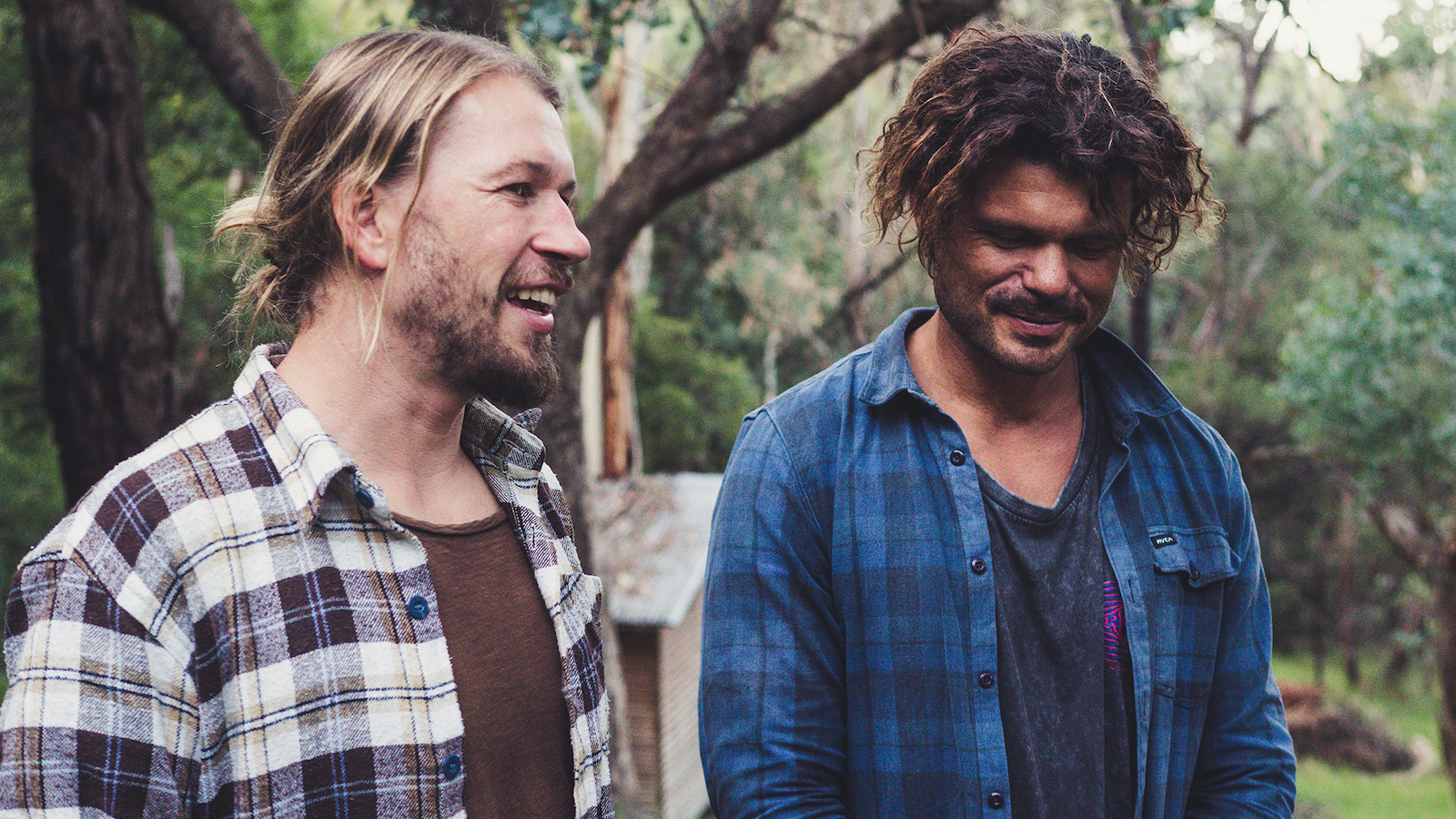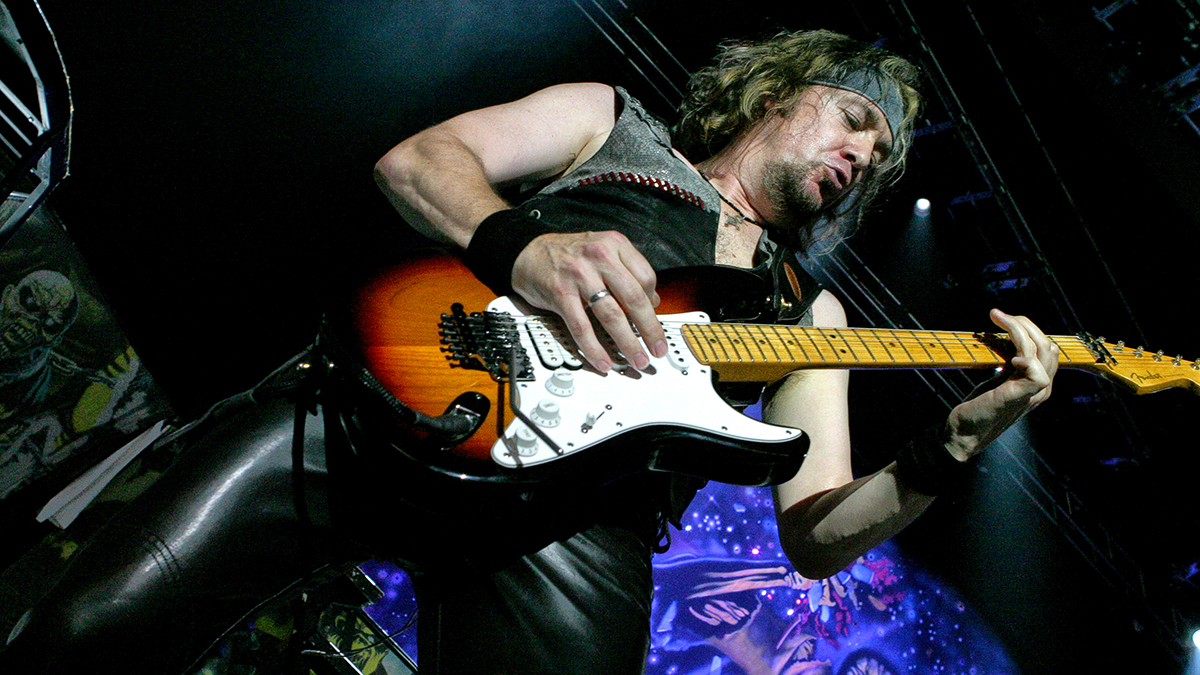Josh Teskey and Ash Grunwald: "It’s the kind of stuff you’ll put on and it’ll instantly transport you to a time and place you wish you could go back to"
Though they’re both undeniably phenomenal songwriters in their own respects, something truly magical happened when Josh Teskey and Ash Grunwald teamed up

You only have to look at next year’s Bluesfest lineup for proof that roots, blues and folk music is alive and thriving Down Under. Hell, even in the underground there is no short supply of fantastic hollowbody harmonisers out there – and right at the tippy top of the food chain, thanks to their transcendental talents behind the fretboard and viscerally powerful voices, are Ash Grunwald and The Teskey Brothers. Both have reigned high and mighty as the 2010s’ defacto icons of Australian rhythm and blues, with Grunwald’s 2015 opus Now and the Teskeys’ ripping 2017 breakthrough Half Mile Harvest especially notable releases.
For 2020, Grunwald and Josh Teskey have teamed up – with the other brother Sam close by as he mans the console – for their most faithful approach to the blues yet: a raw, rootsy and all-over ripping collection of tunes as organic and authentic as they come, both in respect to how they’re presented and how they were written. Push The Blues Away isn’t a particularly weighty release, at just 30 minutes of back-and-forth jamming, but therein lies part of its charm: Teskey and Grunwald didn’t set out to create some big, career-defining masterpiece with this record – rather, they were just keen to hop into a studio, pick up some guitars and see what would happen.
It’s this ‘go with the flow’ attitude that’s led to one of the year’s cruisiest and most easily approachable releases; you won’t need a money-back guarantee because if you like the blues, or Grunwald or Teskey’s other works, you’re almost certain to love this record. Before it lands on shelves in November, we caught up for a chat with both of the soulful songwriters.
Let’s kick things off at the very start: how did the idea for this record come about?
Josh: It all began when Ash asked The Teskey Brothers to be the rhythm section on one of the songs for his last album, Mojo – we obviously jumped at that opportunity, and I did a bit of singing on that one as well, and we just had a lot of fun. Chatting with Ash, talking through the record he was making and really getting to know him, we just had such a blast doing that. We got together to do a film clip for our song, and it was the first time we’d actually met – I’d seen him play a bunch of shows over the years, but he came out to our studio in Warrandyte and hung out.
We had a lot of downtime between shots, and in that time, we just started jamming on some old blues songs. Ash had his guitar in hand, I was playing a bit of harmonica, and we just got to playing some old tunes! And we just started thinking out loud, y’know, “How cool would it be, one day, to go right back to basics and just make a real straight-up blues album – just a couple of guitars, a harmonica, and just have fun with it.” And y’know, Ash being the hustle that he is, a few months later he hit me up and said, “Hey, we should actually do that blues record!”
We’d just finished the cycle for a Teskey Brothers record so I had a bit of time on my hands, and Mojo was finished as well so Ash had a bit of time on his hands, and we just went, “Yeah, let’s do it.” We gave ourselves about two weeks before we got into it, and we both started doing some old-fashioned blues-style songwriting. We got my brother Sam to produce and engineer the record for us – it was all on analogue tape, pretty much everything played live in the room, just real raw and down-to-earth. It was such a blast.
What is it about the blues that resonates so much with you as a musician?
Ash: I’ve always been drawn to it, since I was a little kid. I was 12 in 1988, so y’know, I went headfirst into the ‘90s where guitar solos were off! But in the ‘80s, in a mainstream song they’d usually have a slide solo or something, and as a kid, I’d hear that and go, “What is that!? Why does that sound cool!?” After a while, I learned there was a word for that soulful thing that was always catching my ear: blues. And so I was hooked.
All the latest guitar news, interviews, lessons, reviews, deals and more, direct to your inbox!
Melbourne community radio played a really big part in that when I was a kid – I used to have a tape player that I’d radio shows on and listen back to them over and over again. And there was a really good live blues scene in Melbourne as well, so I became influenced by that and eventually became a part of it. I was about 20, playing at a country pub before I was even a real musician, and there used to be these ten-year-olds busking across the street every weekend – and that
was Josh and Sam Teskey! And so the cycle continues!
That is some Disney movie-level coincidental shit right there!
Ash: The funniest thing about this whole project is that it goes so far back. It was the St. Andrews Pub – I used to play there on Saturday afternoons, and the boys would busk over at the markets across the street. I didn’t even have an album out, I was just getting started out myself. So it’s actually pretty insane how far back we go! That’s also why this album is so special, because we’ve got so much in common, right down to where we came from.
While other guitar-driven genres like metal, punk and rock have all gone through different waves and generational shifts throughout the decades, the blues are almost sacred in that as a style, it’s remained pretty authentic to what it was in the ‘40s, ‘50s and ‘60s. What is it about the blues that you think has kept it so untouchably timeless?
Josh: It’s always been around, y’know? It was old‑timey stuff back in the ‘50s when rock ’n’ roll was just starting to take over. It’s always been here, and I think it’s always going to stay here. People can put their spin on it and it’ll have its place in a modern pop or soul or RnB record – it sneaks its way in there and finds a way to rub its influence off on other styles – but then you have these kinds of albums like what we’ve done, that are really true to what the blues was in its heyday.
I think it’s just always going to have a place in people’s hearts – people continue to love those old records, and they’re just kind of timeless. They create a really nice atmosphere – it’s the kind of stuff you’ll put on and it’ll instantly transport you to a time and place you wish you could go back to.
What guitars were you both jamming on?
Josh: I’m mostly playing my Memphis Custom 335 – I think it’s a 1957 reissue, it’s one of the ones from the custom shop with the hand-cast neck and the old, original lacquers on it. I love that guitar. I bought it myself right before we released Half Mile Harvest, just when we started doing music full-time as The Teskey Brothers. So that’s that kind of Gibson-y sound that you hear on the record – it’s mostly in the background but it sticks out a bit.
On the acoustic numbers and the fingerpicking-style ones that I’m doing, I’m actually just playing my Cole Clark – the Fat Lady, which is just that classic sort of Australian acoustic sound. And that one, I’ve been playing forever. I got that guitar when I was about 15 years old, and it’s been to hell and back, the poor thing! I did a lot of busking on that, so it’s got a lot of beautiful wear and tear. It’s unfortunately taken a bit of a backseat lately, just because it hasn’t quite got the resonance it used to have onstage – but it still sounds beautiful when it’s miced up, so that’s always my go-to acoustic in the studio.
Ash: I was playing my National Steels. I a baritone tri-cone National Steel, which is just a beautiful instrument, and then I also have one called a Revolver – it’s a cedar body, almost looks a little bit like an electric, but it’s got a single cone in it and it’s really good for strumming. It has a really barky kind of sound; you can really hear the onset of the notes, whatever you strum goes ‘tuk-tuk-tuk’. Whereas the tri-cone is a smoother, more sustained sound – it almost sounds like it’s plugged in, like it’s an electric, and there’s a more sing-y kind of slide tone that you can get out of that thing.

Ellie Robinson is an Australian writer, editor and dog enthusiast with a keen ear for pop-rock and a keen tongue for actual Pop Rocks. Her bylines include music rag staples like NME, BLUNT, Mixdown and, of course, Australian Guitar (where she also serves as Editor-at-Large), but also less expected fare like TV Soap and Snowboarding Australia. Her go-to guitar is a Fender Player Tele, which, controversially, she only picked up after she'd joined the team at Australian Guitar. Before then, Ellie was a keyboardist – thankfully, the AG crew helped her see the light…
